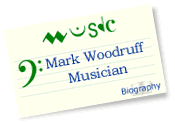

|
| Budgeting for music |
| A deeper, wider musical context |
| Only the greatest beauty will do |
| Music in every church |
| The
Church and a new music |
A deeper, wider musical context
In 2001 it has become commonplace to speak of 'dumbing down', witness the intended popularisation of BBC1, with educational and serious documentary programmes shifted to dedicated digital channels. What has grown up is an expectation that the prime aim of arts and media is to entertain. (This is something we are expecting to do with our chidren too - when we give them music it is to entertain them, and sideline them, keep them quiet or out of the way, and it won't do.) Necessarily this objective is ephemeral and it is fed by a succession of passing interest after passing interest. Not only are we rarely captivated by a thing of beauty or engaged in studious contemplation, but opinion and values are carefully stimulated to acquire ever new but never too abiding appetites for food, fashion, films, 'tracks', 'moves', fads, furies and phases. Changing Rooms is the perfect parable of this flux. What Mark Blatchly and I were finding at Bury was that in terms of music in primary schools ten years ago children were already without many points of cultural reference. If things were not 'now', they belonged in the 'old' archive - and nothing in the archive was for 'now'.
A teacher friend of mine in North London, who is teaching this same age group English and French now that they are coming to GCSE, is astonished at the complete absence of any notion of cultural context, historical antecedents and parallels, the whole wealth of biblical and religious allusion with which English and its literature is suffused. Everything now is about training, and nothing which is not to do with a narrow band of employment paths is deemed to be education. But children whose education is illiberal, containing nothing of music, arts, letters, historical learning and spiritual movement - our 'Wisdom' tradition - are known to be disadvantaged in life and work. It is as though there has been a cut-off point and we have not yet fully noticed what has been pruned. A recent article by Victoria Hislop in the Daily Telegraph (23 June 2001) neatly indicates how prolonged active rhythmic and music listening or practice boosts literacy, numeracy, and thinking skills, as well as enhancing spiritual, emotional and creative development. A century ago, Zoltan Kodaly believed that a musical child can be anything up to three years educationally ahead of non-musical peers. Clearly every child has a potential to reach new heights of learning through music. And yet without creative arts and music it is as though some muscle, instead of being worked on to enable completely new aptitudes, is allowed to remain weak and ineffective. There are obvious implications for conveying education on religion. Music is no mere appendix to it.
Mark Blatchly and I in our respective roles were desperate to provide some sort of context to our charges in the Colts and the choristers, some glimpse of the peerless beauty in humanity that expresses itself in organized sound and is constantly a new song to the Lord. We strove for them each to be as excellent as he or she could be, to rise up somehow and grasp a 'greaterness' beyond them. This is the same 'greaterness' as monks had once known when they sang the Gregorian masses in the Abbey at Bury in the Middle Ages, the gorgeous polyphony alike of the Reformation Catholic Byrd, still writing for the old mass, and the Elizabethan Protestant Gibbons, who fashioned magnificence to deck the new services of the Prayer Book. Here too was some insight into what made Mozart and Purcell and Handel tick; the Lutheran motor which drove Bach; the relation of the European Romantic movement and the impact it came to have on the classic but isolated English choral traditions, leading from Stanford the unswerving Irish Anglican and Elgar the troubled Catholic to the extraordinary mystics - at one remove sometimes from the church, but still entranced by spiritual things - like Vaughan Williams and Herbert Howells.